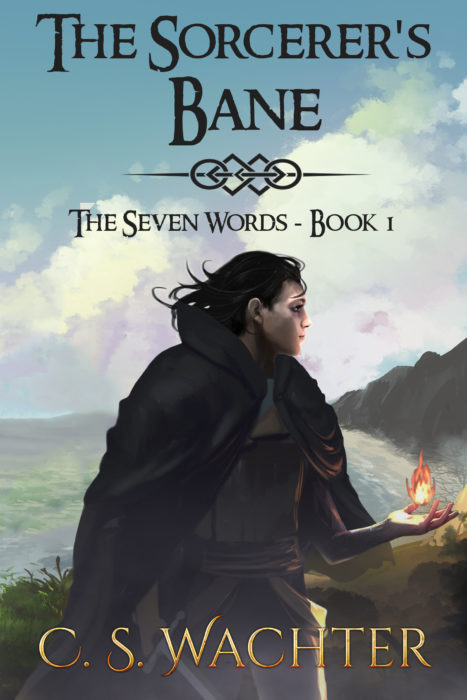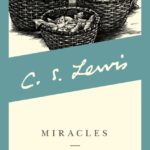We Need Fantasy, and Fantasy Needs God
When did this happen to me? This insatiable need to read?
Probably when I was in fourth grade. I was home sick one day and my mother bought a book for me.
I still remember my excitement and the desire to read that book again and again.
This week we feature C. S. Wachter and her novel The Sorcerer’s Bane in Lorehaven Book Clubs. Stop by the flagship book club on Facebook to learn more about this story.
Subscribe to Lorehaven Magazine for free to download our summer 2018 issue. And be the first to get our fall 2018 issue, releasing next month.
Why do people read? Gaining information, learning something new, or increasing knowledge about a favorite topic can draw seekers to read non-fiction.
But, what about fiction? Entertainment, leisure, escapism tend to top the list for reasons to read fiction.
But is that all there is to it? I wonder. If non-fiction can give us facts and true stories that touch us in certain ways, can fiction, especially fantasy, help us to flesh out our beliefs and expand our perspectives in ways non-fiction can’t?
The heart-power of story
I found this to be true nearly fifty years ago when I first read The Lord of the Rings. If nothing else, the returning king who came offering healing touched my young Christian heart and ignited my imagination, fleshing out truths I had read in the Bible. The story moved me on an emotional rather than intellectual level.
Stories have impact, leave impressions on people’s spirits. Emotions are messy and yet they have enormous control over our thoughts and decisions.
C.S. Lewis said:
At all ages, if [fantasy and myth] is used well by the author and meets the right reader, it has the same power: to generalize while remaining concrete, to present in palpable form not concepts or even experiences but whole classes of experience, and to throw off irrelevancies. But at its best it can do more; it can give us experiences we have never had and thus, instead of ‘commenting on life,’ can add to it.
Fantasy without God?
After reading C. S. Lewis in college, most of the fantasy I read seemed to be lacking something important. Then, a few years ago, I stumbled upon Karen Hancock’s Legends of the Guardian-King series, and like a bolt of lightning, it hit me. If I was seeking relevancy in an engaging story, I would not find it where the ultimate truth of a creator God is ignored.
In the realm of entertainment today, that concept of a divine designer is sadly lacking. For example, I began watching Supernatural, a series about two brothers who fight demons and other nasty supernatural beings. Like in other similar series and books, holy water, crosses, and assorted defenses are used, but their origin, the reason why they possess any power over demons or vampires, is lost in irrelevancy. If we need to battle a strong demon, we don’t turn to God. No, we turn to a nastier, stronger demon. And when angels enter the picture, they aren’t any better than the demons they fight.
 It’s disheartening enough when God is ignored, but some series very specifically attack Christianity. Integrity, family, the covenant of marriage, honesty, and faith in God are all dragged out as anachronistic left-overs from a past we’re encouraged to leave behind. We, as human beings, are on our own. And, therefore, we must decide what is right for us individually in any given situation. Once we throw out absolutes, where is the bedrock for relevancy?
It’s disheartening enough when God is ignored, but some series very specifically attack Christianity. Integrity, family, the covenant of marriage, honesty, and faith in God are all dragged out as anachronistic left-overs from a past we’re encouraged to leave behind. We, as human beings, are on our own. And, therefore, we must decide what is right for us individually in any given situation. Once we throw out absolutes, where is the bedrock for relevancy?
Exploring The Sorcerer’s Bane
“Write what you want to read.” I don’t remember when or where I saw that quote, but in July of 2015, I knew this is what I was being called to do. I hadn’t written anything before this except for college papers and some three-page pieces for a small writing group in my neighborhood (three people). But when I got home after meeting with my neighbors one afternoon, I sat at my laptop and began to write. Of course, me being me, it had to be fantasy. And, of course, God would not be banished to the background or ignored; instead, he would be a powerful presence throughout.
Though The Sorcerer’s Bane has been called dark, and I admit it is, there are shafts of light that pierce that relentless darkness. Could I have written a less dark tale? Possibly, but by the end of the roller-coaster ride that spans all four books of The Seven Words series, when the Son speaks in The Light Unbound, it is to a Light Bringer who has become part of us. We’ve been with him through abuse and pain, doubt and fear, and moments of radiant joy.
The voice of the Son permeated Rayne’s spirit and he knew the voice of the Son was also the voice of the Father One that he had heard so often. It swelled within him. ‘Beloved Light Bringer, chosen of the One. You have suffered much, and your faith has been tested by fire, refined like fine gold. Are you ready now to be our agent of judgement against the darkness consuming the worlds of Ochen?’
‘Yes, my Lord. What would you have me do?’
We cry out with Rayne, united in his answer that now carries the authority and relevancy of one who’s stood at the edge of the abyss and yet still trusts even when the trusting comes hard.
I’ve been told by a beta reader that The Seven Words books strengthened his faith. Fantasy stories that move us add dimension to life rather than just commenting on it. They transport us to other worlds and touch us on a deep level. It is only by his journey into the depths of darkness that Rayne’s words gain the authority to carry us forward into the light. Yes, it’s just a fantasy story. But for those of us Christians who are curious enough to read speculative fiction, the insatiable need leads us to seek out fantastical stories grounded on God’s truths because they not only entertain us, they impact our lives.
“C. S. Wachter flings thematic windows open to sunlight and storms.”
— Lorehaven MagazineExplore C. S. Wachter’s novel The Sorcerer’s Bane in the Lorehaven Library.
Read our full review exclusively from the summer 2018 issue of Lorehaven Magazine!










































I like your reasons for writing and your commitment to represent God. I am curious about other story elements though. Why are there seven worlds? What are they like?
Perhaps I will have to read the books to find out. 🙂
From the very beginning I knew there had to be seven worlds. I even have sketches of how they would connect. I don’t know if my subconscious was hard at work juggling the associations surrounding the number seven, especially the idea of perfection and God’s blessings. Anyway, I have posted some information about the worlds on the Lorehaven Bookclubs facebook page. If you are interested there is even more information on my website: cswachter.com. Of course, I would be remiss if I didn’t encourage you to read the books as well ;-).